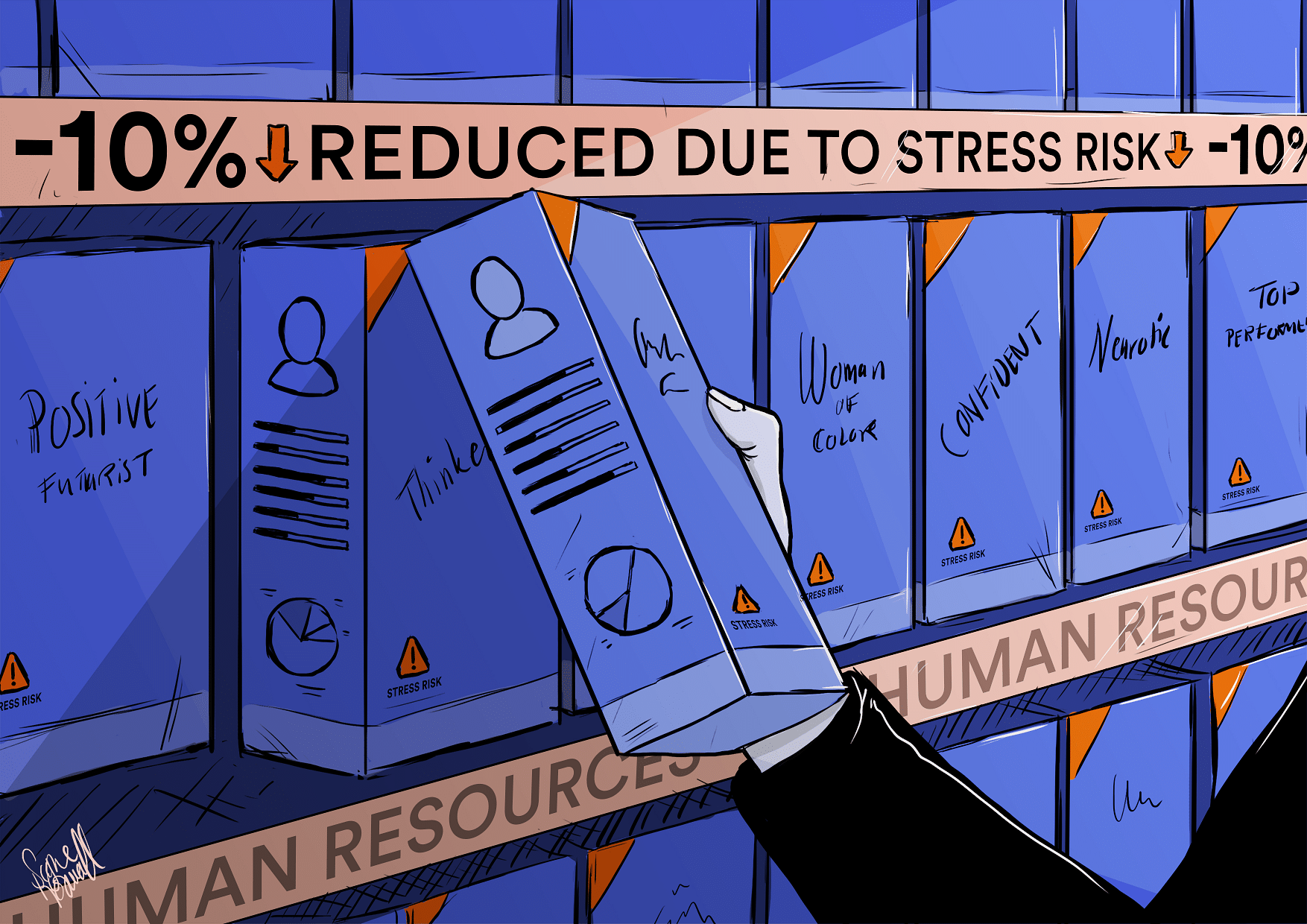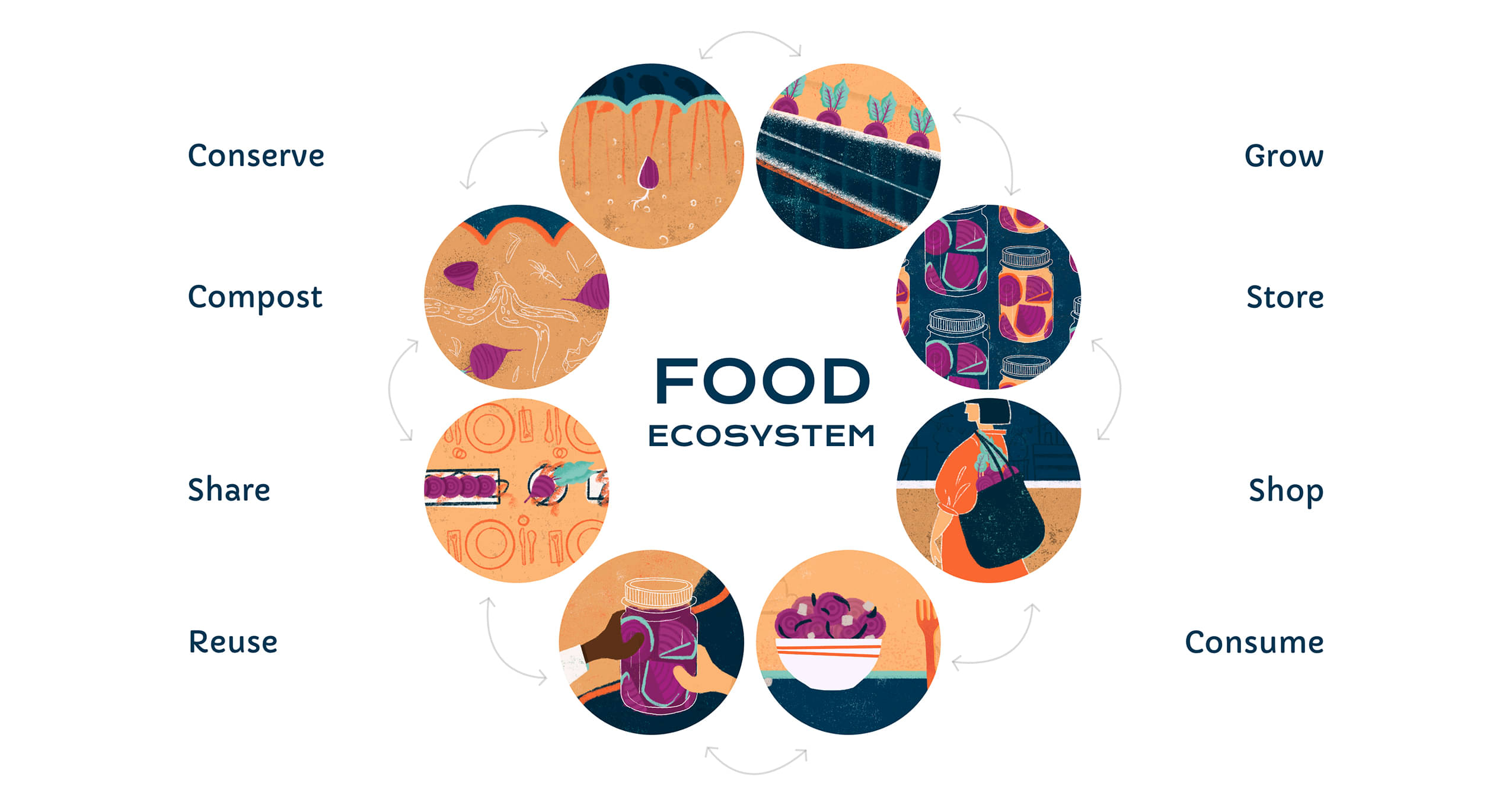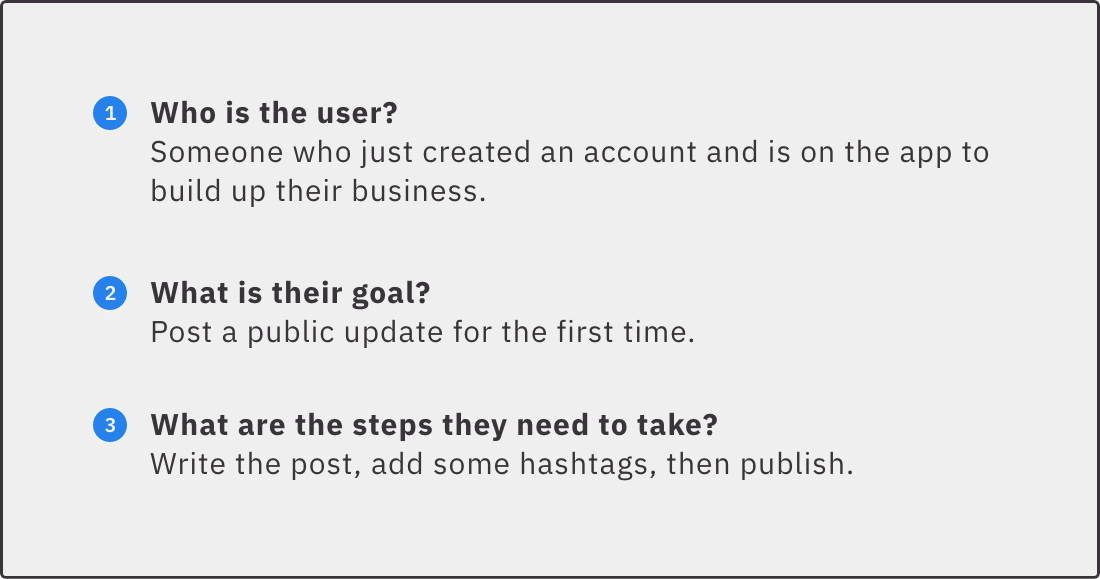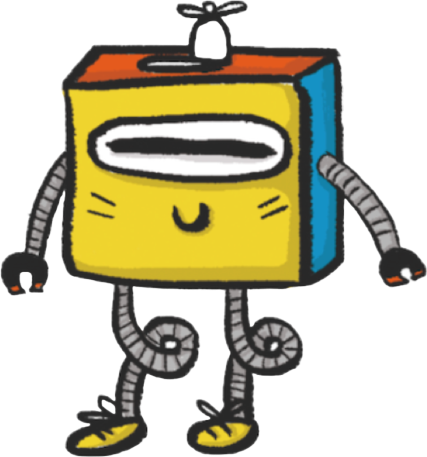It’s been a year since, in January of 2019, I published the article How to Ace the Design Test.
In it, I argued how take-home (design) assignments used in the hiring process need to be seen for what they really are: unpaid work that unhealthily distorts the equity between company and job applicant.
“How to Ace the Design Test” As part of a job search I found myself googling for a solution when really I was asking the wrong question. blog.prototypr.io
Since publishing the article, I’ve actually had some experiences with the hiring process, believe it or not.
One of them was an interview with a company for a position that sounded promising, but where I was asked to do a “classic” take-home design test. Even then, I almost considered just doing it. It would be a lot less confrontational, and confrontation is like the kryptonite of the professional world. But really, it’s not so much the test; it’s the principle. And without principles, what would I be but a literal Human Resource?
So — heart racing — I stammered something like, “Well, eh, I’m kind of… against Design Tests. I, uh, don’t do them, out of principle… So… Yeah…”
In my mind, those words and their meaning were so significant but coming out, they were also terrifying. I supplemented with some arguments and, perhaps, managed to make my point. They looked at each other, then at me, then at each other again. Those few seconds of silence were the worst.
But then, they completely surprised me by saying, “Well… Alright. We’ll just move to the next step in the process then!”
In another experience, and probably due to my outspokenness about them, I was approached with the guarantee that no design test would be part of the process. Because of this, I agreed to an informal chat and the mutual honesty in the call was refreshing. Not even my mentioning of “ethical design” was enough to scare them off. I agreed to continue in the process, enthusiastic about what would happen next. As promised, it wasn’t a design test.
Instead, I was asked to take a personality test.
…
….
…..
Sure, I could just take the test.
How hard could it be; click the options you agree with the most that day. I’ve taken personality tests just for myself before, and they all give me exactly the same completely different results. Some days I’m a dominatrix, other days I’m a dreamer, and on rare occasions, I’m “R2-D2” from Star Wars. Beep boop beep!

But doing a personality test for a company, one I wasn’t even part of? This was some pretty personal information I would just be handing over to total strangers. What exactly would this test show, or more importantly, what would it not show? Would their very impression of me not just be determined right from the beginning? I got a bad feeling about this.
“Subjects take a single, brief online assessment and boom, they’re typified.”– Personality Tests Are the Astrology of the Office, New York Times (2019)
When I asked around, personality tests seemed to be a pretty standard procedure, which I had apparently just been lucky enough not to run into in any of the 9 different (Danish) companies I’ve worked for. A reaction from a friend was; “oh yeah, I was asked to do one once and just filled it in, didn’t think much about it.” My own partner’s comment was, “It’s just clicking some stuff. If you want, I can just do it for you.” He’s such a gentleman ❤️
The only thing I knew at that point was, I needed to know a whole lot more.

My search first led me to “the usual suspects” like the Enneagram, DiSC, and of course, the Myers-Briggs Type Indicator. I also rediscovered the website 16Personalities.com, whose test I’d tried before. Since I couldn’t remember my result, I retook the test, read about the different types — several of which resonated with me — and quickly concluded:
I don’t have a problem with personality tests.
In fact, I’m all for enjoying a narcissistic moment whenever we can, especially if it will help us learn a little something more about who we are.
My dilemma was the tests being used to assess a potential candidate for a job. That nagging feeling inside reminded me of how I feel about design tests. But I soon realized this was actually an established million-dollar industry. So if I was really going to take on personality tests (which of course I had to), I needed to be very clear about what exactly the issues were.
“Personality testing is now a $500 million industry, with growth rates estimated at 10 to 15 percent annually” — Personality Tests Are the Astrology of the Office, New York Times (2019)
The first clue is in the Name
Despite reassurances from the company, I couldn’t help but feeling like I had to pass a test — an exam — with answers that were either correct or wrong.
And ultimately that the person I am, was either correct or wrong.
Now more than ever, we are acutely aware of what is required of us because we are constantly reminded of how we should be — what the right ingredients are in the perfect human specimen — the ideal employee. We’ve only just waved goodbye to 2020 and are already bombarded with “Top 21 skills you need for 2021” articles. Modern society is requiring enough of us as it is. Can we really blame someone for trying to live up to expectations to get a job and, at the end of the day, be able to pay their bills? I sure can’t. In fact, this is precisely the sort of thing I would expect to happen because asking people to take “a test” will get you exactly that.
“While the MBTI [Myers-Briggs Type Indicator] and other personality tests promise to help you find the best work to suit your personality, they also hint that showing that personality in a flattering light — not just during the application process but also in ongoing performance reviews — will be necessary if you want to find and keep a job.”–The Tyranny of Personality Testing, The New Republic (2018)
Hell, your friendly neighborhood psychopath might even take this as a fun challenge. Have The Lambs Stopped Screaming, Clarice?
We need to Talk about Bias (again, apparently…)
One of the arguments in favor of the test was the potential to remove bias from the hiring process, which puzzled me somewhat.
We’re all affected by cognitive biases all the time and we can’t really help it — you’ve probably already seen some of the hundreds of Medium articles on the subject. A few examples from the extensive list of known biases are the self-serving bias about maintaining our self-esteem by, amongst other things, ascribing failure to external factors. The effort justification bias, which, as the name suggests, is the tendency to over-value results that “cost” a lot to achieve. Stereotyping and good ol’ prejudice are on the list as well, ready to help us place people in their appropriate boxes. Are all these examples conveniently relevant? Most likely, that’s a result of my own confirmation bias; in fact, this whole article probably is. Forming a completely unbiased opinion is near-impossible, and doing a psychological evaluation isn’t something the average person can do, much less out from an online 30-minute test. It requires rigorous study to be able to draw any conclusions about an individual.
Cognitive bias cheat sheet Because thinking is hard. medium.com
“I think a significant con of using personality tests for recruiting is it sets you up to be biased. You may attribute a candidate’s behavior and words to what the test says, rather than actively listening to people.” — Using Personality Tests as a Hiring Tool: What Are the Pros and Cons?, AllBusiness (Updated 2020)
And speaking of biases, despite feeling confident in my doubt, I wanted to try to investigate “the other side” to get a full perspective, thinking maybe there was some compelling argument for the test I was just missing.

I found many examples of companies selling personality tests to other companies. And that’s worth considering: that there is actual money potentially earned on the tests so long as they continue as standard practice. Money makes the world go around.
It also makes it very hard to determine if personality tests as part of the hiring process are, in fact, needed — or if it’s just the companies selling them saying they are. After all, someone also insisted the Shake Weight was everything the exercise deprived consumer needed despite it being reported to actually burn fewer calories than just walking at 3mph. (Source)

“According to one estimate, up to 70 percent of Americans have taken a personality test as part of a job application, which suggests that something more coercive is driving the $500 million personality-testing industry.” –The Tyranny of Personality Testing, The New Republic (2018)
Most of the articles I found arguing for the test were written for content marketing purposes by the companies themselves. At best, they were baseless claims and, at their worst, hostile statements about the nature of employees, such as this one:
“Personality tests have long been noted to be one of the strongest predictors of how a potential candidate will behave in a particular job position. It’s just simply hard to get employees working together on the basis of your terms. And it’s only because every person is too self-centered and greedy to collaborate. True, we are the most social species on earth — but then, we are also inherently selfish.” Personality Tests: A Must-Have Tool for Recruitment, Mercer (Updated 2020)
Despite this, I was beginning to consider that the tests might help evaluate teams on a more general, higher level. This was moderately supported by neuroscientist Darshana Narayanan who, despite not believing in them, indicated that “personality tests provide the most useful information when used at scale rather than as a means of understanding individuals, contrary to the ways in which they’re typically deployed.” — — Personality Tests Are the Astrology of the Office, Emma Goldberg, New York Times (2019)
I managed to find a few “pro’s and con’s” articles, but even they echoed some of my own concerns that, undeniably, centered around ethics.
Biggest Pros and Cons of Personality Tests as Hiring Tools | The math behind hiring and retention costs is often distressing for employers, so it’s little surprise when hiring…www.inc.com
Using Personality Tests as a Hiring Tool: What Are the Pros and Cons? | Smart leaders understand how powerful having different personality types in the…www.allbusiness.com
Questionable Ethics and potential Discrimination
Wanting more information about the specific personality test I had been asked to take, I went to their website. But any particular details about the test’s origin or validity, such as established supporting theories or expert statements and scientific research of the test, were completely lacking.
“Our tests are based on neurological and psychological studies, which form the framework for a unique way of identifying talent, on an individual level and in teams. Our tests are based on the latest knowledge and are therefore constantly evolving, in order to provide the best solutions for you.” — Talents Unlimited
“Its patented design uses kinetic force and tension to tone the arms for a sleek and sexy look. Shake your way to firm and fabulous arms and shoulders in just six minutes a day with the shake exercise weight. […] Users see dramatic results in just six minutes a day.” — Shake Weight
I discovered that the 440 20-second-timed questions in the 30-minute test would generate a 20-page long report, which would be sent off to the company. And that wasn’t even going to be the biggest WTF-moment about the test itself, because it also covered something they call “Stress Risk.”
On their website, the company writes:
“Stress is a large and frequent problem for many individuals, organisations and society as a whole. The purpose of this graph is to identify which types of stress individuals are most susceptible to, and subsequently enable them to engage in preventive measures to minimise the risk of stress occurring in the workplace. It is likely that an individual is at risk for the specific type of stress if their score is in excess of the central average column.” — Talents Unlimited Website (Jan 2021)
Now, I want to believe the intention behind this is good. But just why exactly would you need this when assessing a candidate? We all know the only correct result in that graph is the “Top Performer” (aka. the workaholic.) If your results show “Neurotic” or “Submissive” (which, in contrast to “Top Performer,” are both negatively charged words), good luck finding a job, I guess? Engaging in preventive measures is one way of using this, another could be determining how far you can push a person before they break. I fail to see how it is relevant for hiring because, at this point, you literally haven’t even hired the person yet. Do you know what also helps determine if people are under stress? Asking them and not just accepting “Oh, I’m fine,” as an answer.
Being able to pick candidates based on mental health or capacity is, in my opinion, discrimination.
“Personality tests have come under scrutiny in the past by the Equal Employment Opportunity commission. For example, some test questions may be framed in such a way that candidates suffering from mental illness will be disqualified. Make sure you consider the ramifications of what you’re asking and aren’t inadvertently (and illegally) soliciting disclosures of disabilities.” — Biggest Pros and Cons of Personality Tests as Hiring Tools, Inc (2017)
Finally determined, I scheduled another call with the contact person and told them; long story short: I wasn’t going to do the test. I was nervous that I would be pissing them off because that was really not my intention. The response was they’d think it over, but one argument for using the test was, it enabled them to have honest conversations about who potential candidates were, as people. Before we get to that, though, there was just one more point that my father actually made.
What about Innovation and Diversity?
“It’s like picking out wares from a shelf in the grocery,” my father said when I asked him about the test. “You’ll get variations of essentially the same thing.”
When I asked what exactly he meant, he added:
“It’s a missed opportunity to get someone who isn’t on the shelf. The original, the odd one out. Someone to challenge how things already are, to create something new. ”
You cannot be a full individual, the sum of thoughts, experiences, and feelings, both good and bad, in a test because you are being reduced to a series of words and numbers on a chart that someone else decided how should be described. Analytical, 68%. Neurotic, 30%. Empathy, 12%. That’s not a person; that’s an excel sheet.
If we’re hiring out from the same, preferred traits, what happens to diversity? We’ll end up in our own, carefully established echo-chambers of people who all agree with us. Sure, it’s easier and less confrontational that way — but is finding a compromise even when disagreeing not the most crucial ingredient in a world where we are all different — yet still need to co-exist? If you’ve already decided on the “right type” for your position, you may never get to hire the person needed to rethink and challenge what even is “right.”
How can you say you already know who they are?
If people are not fitting into your workplace culture, you need to ask yourself how you can be more inclusive of differences as a company. Embrace people with other beliefs than yours, instead of filtering them out.
“As always with data-driven initiatives in business, the data should only go so far. Many critical hires are made due to a “good feeling” that may have been overruled by test results.” — Biggest Pros and Cons of Personality Tests as Hiring Tools, Inc (2017)
Dig a little Deeper
I was beginning to realize that personality tests, and maybe even design tests might both be symptoms of an underlying problem. In my objection towards the tests, I also had to accept there was likely a reason for them, even though I did not understand the solution. After all, it was created by people much like myself, simply following what they believe is the right solution.
The contact person from the company had actually given me an important clue when I asked why they felt the need for the test. They said the tests enabled them to have honest conversations with people about who they are.
If you’re not able to have honest conversations as part of your hiring process, then that is the real problem. And just consider for a moment, if perhaps setting up tall expectations for the type of employee and culture you want, and implementing tests to filter out the “undesirables” is actually the very reason you can’t have honest conversations with candidates, to begin with?
People need jobs to earn money to survive, it’s not an optional thing. They’re not going to be entirely honest with you — at least not as long as you’re not also being entirely honest with them.
“What are some of the challenges you expect the person in this position to face? How long did the previous person in the role hold the position? What has turnover in the role generally been like?”–These are the best questions to ask your job interviewer, Ask A Manager
The good news is, this is something we can work on fixing, together. Just imagine for a moment, if the hiring process was in fact honest. Would you not be much better equipped to determine the match with a job or a candidate, if you knew the pros as well as the cons? Would that not create more matched hires? It all comes down to something as “unsexy” as interview questions.
Good Questions = Good Conversations
In my experience, good conversations usually come from having good questions. Just doing a quick search on this led me to a ridiculous amount of articles about what to ask a potential candidate to get to know them.
“Think of the classic prompts: What are your greatest strengths and weaknesses? Tell me about a time you overcame a challenge at work. Many employers still use these types of questions simply because they’ve heard them before. The standard interview is a tradition of sorts that has been passed down from one generation to another.” — How to Design a Better Hiring Process, Harvard Business Review.
Some of them even suggest designing your hiring process, treating it like a product that continuously needs to be tweaked based on feedback. After all, why would you save time and effort on what is likely the most crucial part of your company? Personally, I rely heavily on good ol’ intuition; and asking myself the question, “Is this a person I think would be interesting to work with?” After all, believing in your own intuition is no less scientific than believing in a personality test, and I choose intuition.
“Spotting a poor cultural fit can be challenging during a phone screening, or even an in-person interview. This is especially the case when a company defines its culture in non-specific or cliché terms (e.g. “we’re a team of hard workers who go above and beyond, but have fun doing it”).” — Biggest Pros and Cons of Personality Tests as Hiring Tools, Inc (2017)
At the end of the day, there is no guarantee. Someone who has been an employee for years might one day quit their job because they felt like it.
Instead of making demands, or worse, forcing people to comply with some process when they’re in a disadvantageous position, treat them with equality, respect and honesty. Do that, and they just might return the favor, hell, they might even like working for you instead of feeling scrutinized and unjustly treated. As a colleague said to me, which made me realize the depth of the problem: “I feel like that is the very embodiment of job interviews.”
Finally, some Conclusions
Soon, an email ticked in from the company letting me know I would be required to take the test. I wrote them a reply saying, that this was a deal-breaker for me personally and thanked them for their time.
Standing by your principles, good as it may be, will have consequences. But the question we need to ask is whether the consequences of not being true to ourselves isn’t ultimately worse than a missed job opportunity. Being more or less forced to do something you don’t really want to do is not a good way to start off a professional relationship. Your confidence in yourself as a person and in your abilities as a professional is a crucial part of getting hired.
“An assessment is supposed to be voluntary. If you force people to take a psychological test, you’re essentially saying that you expect all aspects of their lives to be open to your scrutiny and use. It’s a great way to tank morale and scare off many talented candidates you might otherwise attract.” — Hiring? Why Myers-Briggs Tests Are a Bad Idea, Inc (2013)
But if you push a little, boundaries sometimes also move a little. And if you are a desired candidate, you have not only the privilege but also the duty to push back and even the balance. If everyone refused to take the tests, it would very quickly stop being standard procedure and a million-dollar industry would crumble. You have that power in you right now. You also have the power to bring a bit more honesty into the hiring process, for all of our sake.
How to Pass the Personality Test?
Show companies who you are, by being honest, true to yourself, and stand by your principles. Demonstrate your professionalism by refusing to be unfairly scrutinized, discriminated against, typified, coerced, whether through unfairly long hiring processes, ridiculous design tests, or fictitious personality tests. Prepare for companies that are unprepared for how best to hire you.
Or, you know, just watch this video, which literally tells you how to do it:
At the end of it all, this article just told you more about my personality than any test ever could.
“It is unethical to use the MBTI tool for hiring. Completing the assessment must be voluntary (not required of job applicants), and the results are confidential and belong to the respondent. Furthermore, people of many different types excel at the same job for different reasons. Individuals should not be pigeonholed based on their personality preferences.” — CPP, The Myers-Briggs® Company infographic
Articles Quoted or Researched and other Sources:
- Biggest Pros and Cons of Personality Tests as Hiring Tools
- Using Personality Tests as a Hiring Tool: What Are the Pros and Cons?
- Personality Tests Are the Astrology of the Office
- Candidate screening: The benefits of personality testing
- 5 Reasons Why You Should Use Personality Assessment in Recruitment
- Do Personality Tests Have a Place in the Hiring Process?
- People Sorting: An Interview With ‘Personality Brokers’ Author Merve Emre
- Myers-Briggs® Personality Test VS. Astrology: What Each Says About Their Personality
- Free personality test, type descriptions, relationship and career advice
- The Tyranny of Personality Testing
- Why workplaces must resist the cult of personality testing
- Hiring? Why Myers-Briggs Tests Are a Bad Idea
- How Accurate Are Personality Tests?
- How to Design a Better Hiring Process
- The Myers & Briggs Foundation — Ethical Use
- Talents-Unlimited TT38 markedets stærkeste personlighedstest
- Cognitive bias cheat sheet Because thinking is hard.medium.com






